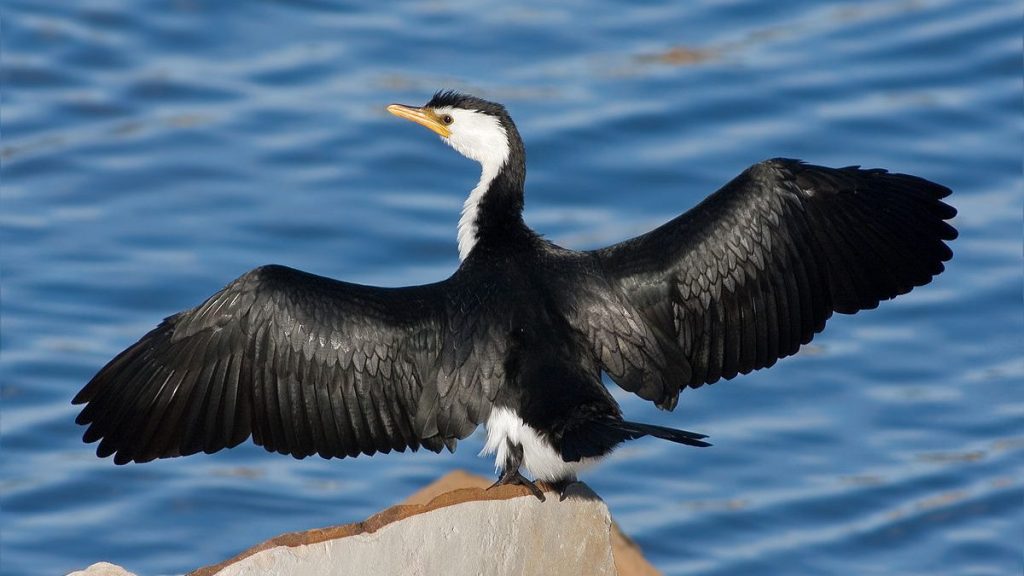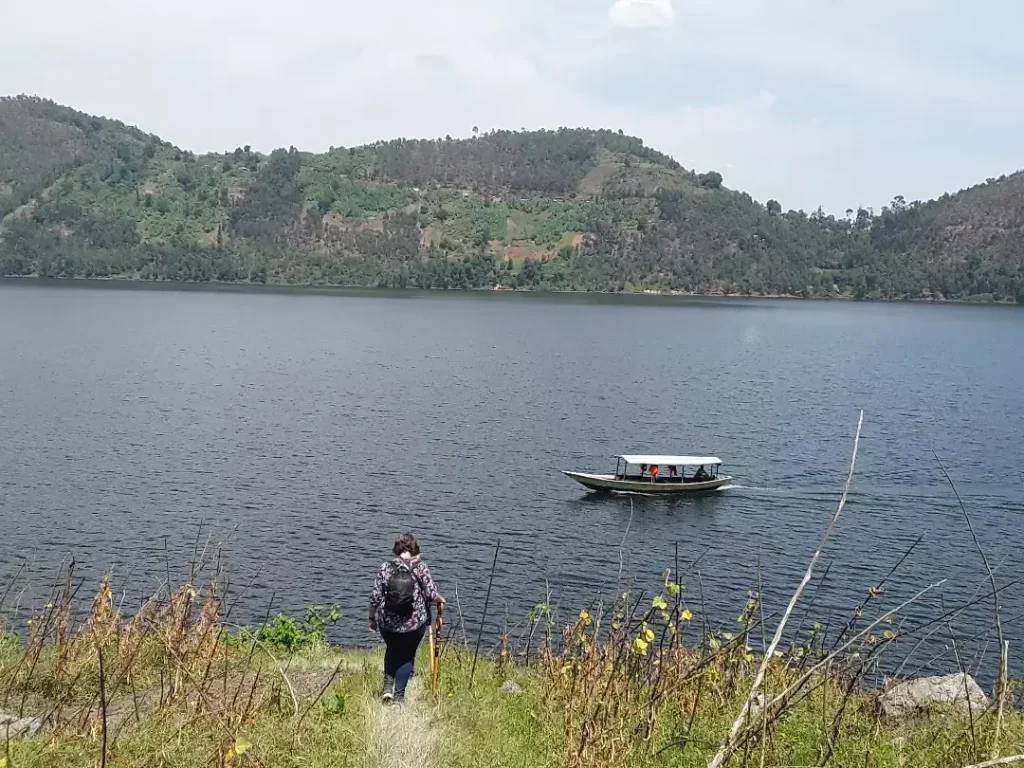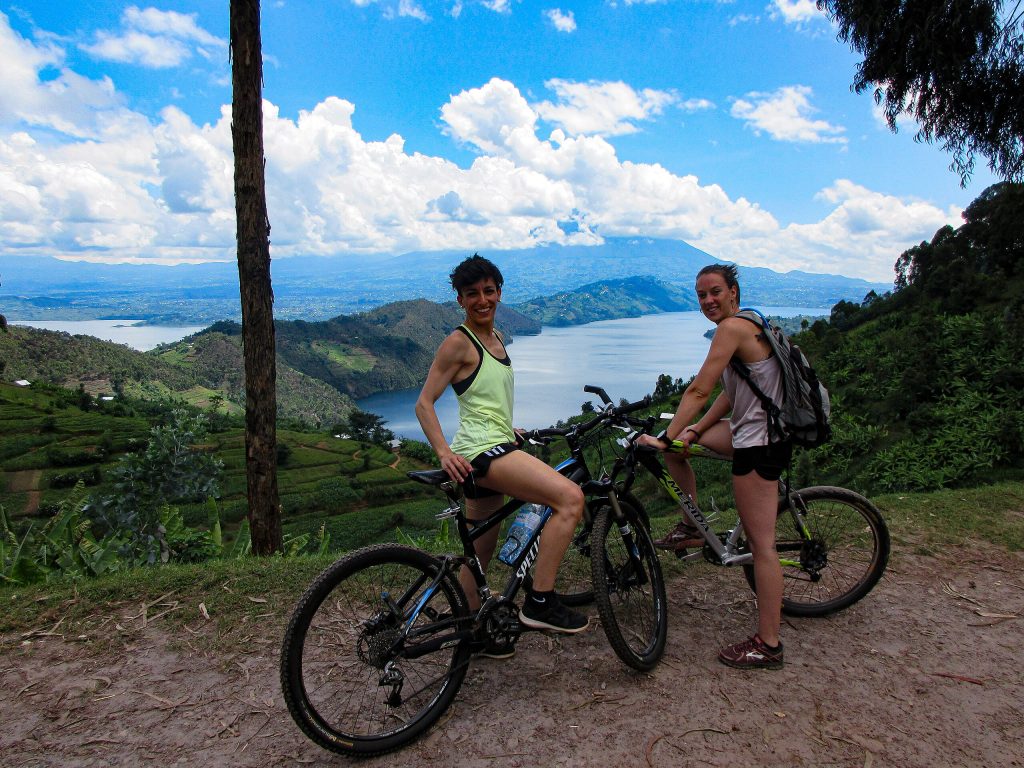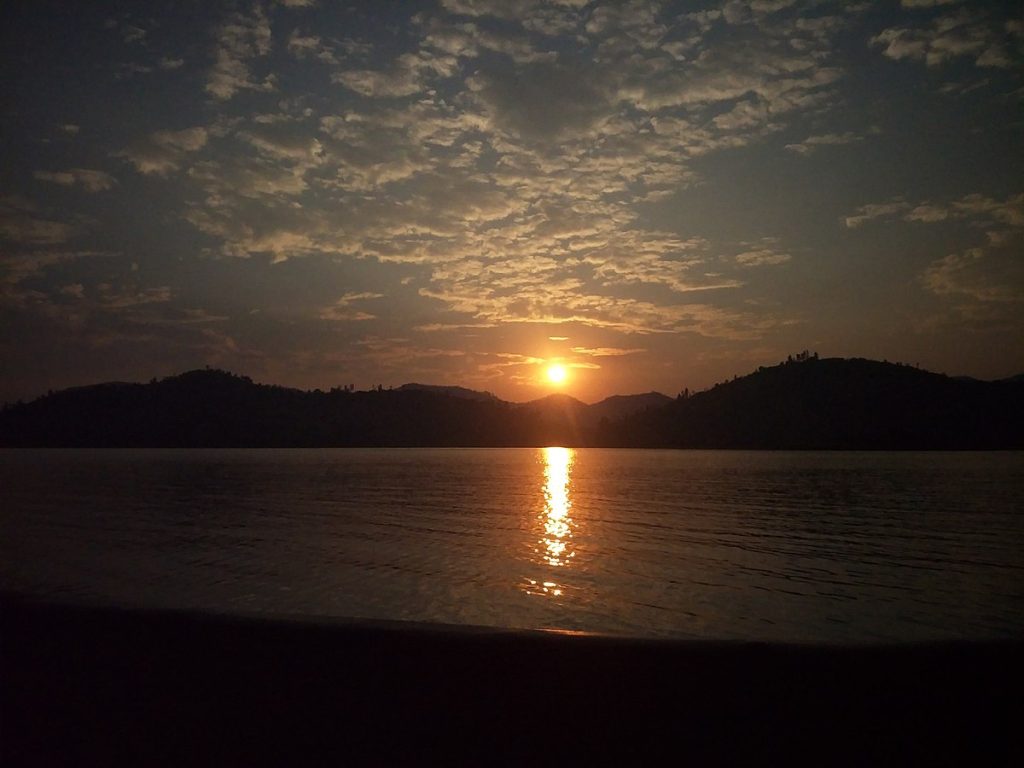Burera & Ruhondo Twin Lakes
- Updated: 7 months ago
- By Editorial Team
Burera & Ruhondo Twin Lakes – Rwanda’s Mirror of Mountains and Quiet Wonder
The Twin Lakes, Burera and Ruhondo, can be quietly found in Rwanda’s northern hills, side by side like a pair of cupped hands holding stories.
The hills ripple around you, green and endless, and the water stretches out like a mirror laid gently across the valley floor. The sky leans close. Clouds drift lazily and slows to a whisper. There’s no rush here. Just rhythm. The kind Rwanda wears so well.
From the lakeshore, volcanoes rise like ancient kings with the giant peaks of Karisimbi, Muhabura, Sabyinyo—silent, majestic, sometimes dusted with mist like memory.
In the shallows, papyrus sways, watchout for birds trace wide circles overhead. A fisherman in a carved wooden canoe dips his paddle gently, barely making a sound.
Because of the few people here, there are no motors humming, no crowds calling—just the quiet chorus of wind, water, and life as it was long before any roads were built.
This isn’t a place for rushing. It’s a place for returning to yourself. Whether you’re floating across the glassy surface, wandering island paths, or simply watching the light shift across the water, Burera and Ruhondo invite you into the soft, unspoken beauty that lives in the pause between moments.
Safari Activities in Burera & Ruhondo
Start with a canoe trip in the morning when the water is still cold, and the air is light with mist. Your guide, often a local fisherman, paddles slowly while telling quiet stories in Kinyarwanda. You may not understand every word, but the tone is enough.
The boat trip is peaceful and quiet. Kingfishers flash above your head. The boat cuts silently across the lake’s skin. Behind you, the sun rises over the volcanoes and stains the water with gold. You sit back. You breathe. You let the water carry you.
Hop off on one of the islands scattered like green beads across both lakes. On Munyange Island, the ground smells of wild herbs and goats graze lazily under acacia trees. You can hike up a short hill and get a 360-degree view of both lakes, twin arms embracing the valley. It’s the kind of view that doesn’t ask for your camera—it asks for your stillness.
Friendly Gorillas Safaris can prepare a comfortable and unforgettable. Warm chapati, grilled tilapia caught just that morning, avocado with a dash of lime, and a thermos of hot ginger tea. You sit on a rock or a grassy patch, legs stretched out, watching the water shift like silk. Nothing urgent. Just the sound of waves kissing the shore.
For bird lovers, the lakes are alive with wingbeats. Grey-crowned cranes, herons, and sacred ibises drift across the water or preen in the reeds. Binoculars are optional—most birds here come close enough for a quiet hello.
You can also walk village trails between the lakes. Children wave and shout “Amakuru!” from dusty paths. Women carry baskets on their heads with the elegance of queens. And if you’re lucky, someone will invite you into their home for boiled maize, laughter, and a story or two. It’s not a scheduled activity. It’s the kind of thing that just happens here.
Burera & Ruhondo Twin Lakes Gallery
When to Visit the Twin Lakes
The lakes are open all year round, but each season writes its own love letter.
From June to September, the dry season casts a golden glow across the hills. Trails are easy to walk, the sky stretches wide and blue, and the water holds every reflection like it’s trying to remember the light. These months are ideal for clear canoe rides and open picnics.
From December to February, the lakes wear a quieter charm. The sun is softer, the hills stay green, and the air carries the scent of drying eucalyptus leaves and ripening fruit. Fewer visitors come during this time, which means the silence deepens and the welcome feels even more personal.
March to May and October to November are the rainy seasons. And while some may shy away from mud and cloud, the lakes become something else entirely. Mist rolls across the surface like breath.
The trees drip steadily. The world smells of earth and renewal. Canoe rides feel like dreams, and the hills glow a deeper green. It’s less predictable, yes—but deeply poetic if you come with an open heart and waterproof shoes.
The Twin Lakes Location
The Twin Lakes sit quietly in Rwanda’s Northern Province, tucked between Musanze and the slopes of the Virunga Volcanoes. From Kigali, it’s a three-hour scenic drive past market towns, terraced farms, and roadside stalls selling sweet bananas and grilled maize. You don’t need directions—you just follow the road until the hills begin to reflect themselves. That’s how you’ll know you’re close.
Both Burera and Ruhondo are framed by highlands and volcanic ridges, giving them a cradle-like quality. It feels like the land is holding them, protecting them. From Kinigi, the entrance to Volcanoes National Park, it’s less than 30 minutes by car.
That makes the lakes a perfect stop either before or after your gorilla trek. One moment you’re deep in misty forest tracking primates, the next you’re drifting in a canoe with the volcanoes behind you, quiet and glowing.
History of the Burera & Ruhondo Twin Lakes
The story of Burera and Ruhondo is not written in books—it’s sung in lullabies, passed between paddles, and whispered in morning prayer. Long ago, these were sacred waters. Once upon a time, the local people came to their shores for blessing, for cleansing, for connection. The lakes are volcanic in origin, born from the same deep earth that shaped the Virungas.
Even now, their edges are lined with black stone and fertile soil, gifts from the mountains long cooled.
The lakes were once survival lifelines. Families fished with hand-woven nets and gathered papyrus to build their homes. Boats were carved by hand. The rhythms of lake life moved slowly, tied to weather and season, moon and song. That rhythm still exists, though now shared with visitors who come not to take, but to witness.
Friendly Gorillas Safaris works closely with these communities—not just guiding, but supporting. A portion of what you spend here goes back to the schools, the cooperatives, the women weaving baskets in the shade. So your presence, when done gently, becomes part of the story too.
Accommodations in Burera & Ruhondo Twin Lakes
There are no luxury hotels on the lakes themselves—and that’s what keeps their soul intact. But nearby, in Musanze and Kinigi, you’ll find cozy lodges and peaceful guesthouses that echo the quiet grace of the water.
At the edge of the lakes, The Virunga Lodge offers views that take your breath and hold it. Every room opens onto a panorama of lake and volcano, and evenings here are soft with firelight and fresh tilapia under starlight.
Tiloreza Eco Lodge in Musanze blends comfort and Rwandan warmth. Clean, quiet, with lush gardens and easy access to both the lakes and Volcanoes National Park. Their team speaks softly and smiles often.
La Locanda is perfect for travelers who love simplicity, good food, and a kind atmosphere. It’s not fancy, but it’s full of feeling. The kind of place where you hear goats in the morning and crickets at night.
If you’re not sure where to stay, let Friendly Gorillas Safaris arrange the details. They know which lodge has the best tea at sunrise, which window shows the lake just right, and how to match comfort to your travel rhythm.
Frequently Asked Questions
Can I swim in the lakes?
Swimming isn’t common due to their depth and vegetation, but locals occasionally do near the shores. The water is clean, but visitors are encouraged to enjoy it from boats or the edges. If you want to dip your toes, find a quiet, shallow spot and wade in gently.
Is it possible to visit both lakes in one day?
Yes. In fact, most visits naturally include views and activities around both. They sit so close together that they feel like one experience. A guided tour with Friendly Gorillas Safaris can take you from one to the other by boat, car, or foot.
Are the lakes good for photography?
Absolutely. From sunrise silhouettes to golden hour reflections, from village portraits to wildlife in reeds—every glance feels like a painting waiting to be framed. Even if you’re not a photographer, your phone will work overtime.
Are there cultural experiences nearby?
Yes. Local villages around the lakes welcome guests to learn basket weaving, fishing techniques, and traditional cooking. It’s not a performance. It’s life, shared gently with those who come respectfully.
Is it easy to reach the lakes from Volcanoes National Park?
Very. In fact, many travelers choose to visit the lakes on the same day as their gorilla trek or the morning after. The short drive and long views make it a perfect addition to your northern Rwanda adventure.
Can I visit without a guide?
You can, but having a local guide—especially from Friendly Gorillas Safaris—adds meaning. They’ll introduce you to fishermen, help you translate greetings, share the deeper stories behind each island, trail, or tradition.
How many days should I spend?
Even one day at the lakes will shift something in you. But two or three days allow you to fully surrender. Watch the sunrise. Walk the villages. Sit by the water with a book and a thermos of tea. Let the lakes teach you the beauty of not rushing.
Conclusion: The Stillness That Remains
Burera and Ruhondo don’t usually have many guests but, they are surely worth your visit. They wait. And for those who come with open hearts and quiet feet, they offer something rare—a mirror not just of the sky, but of your own stillness.
Let Friendly Gorillas Safaris take you there. Let the paddles lead you gently. Let the twin waters open a space where time forgets to move and beauty doesn’t ask to be explained.
Because some journeys aren’t measured in miles or photos. They’re measured in how slowly you breathe, how deeply you feel, and how long the quiet stays with you after you’ve gone.










